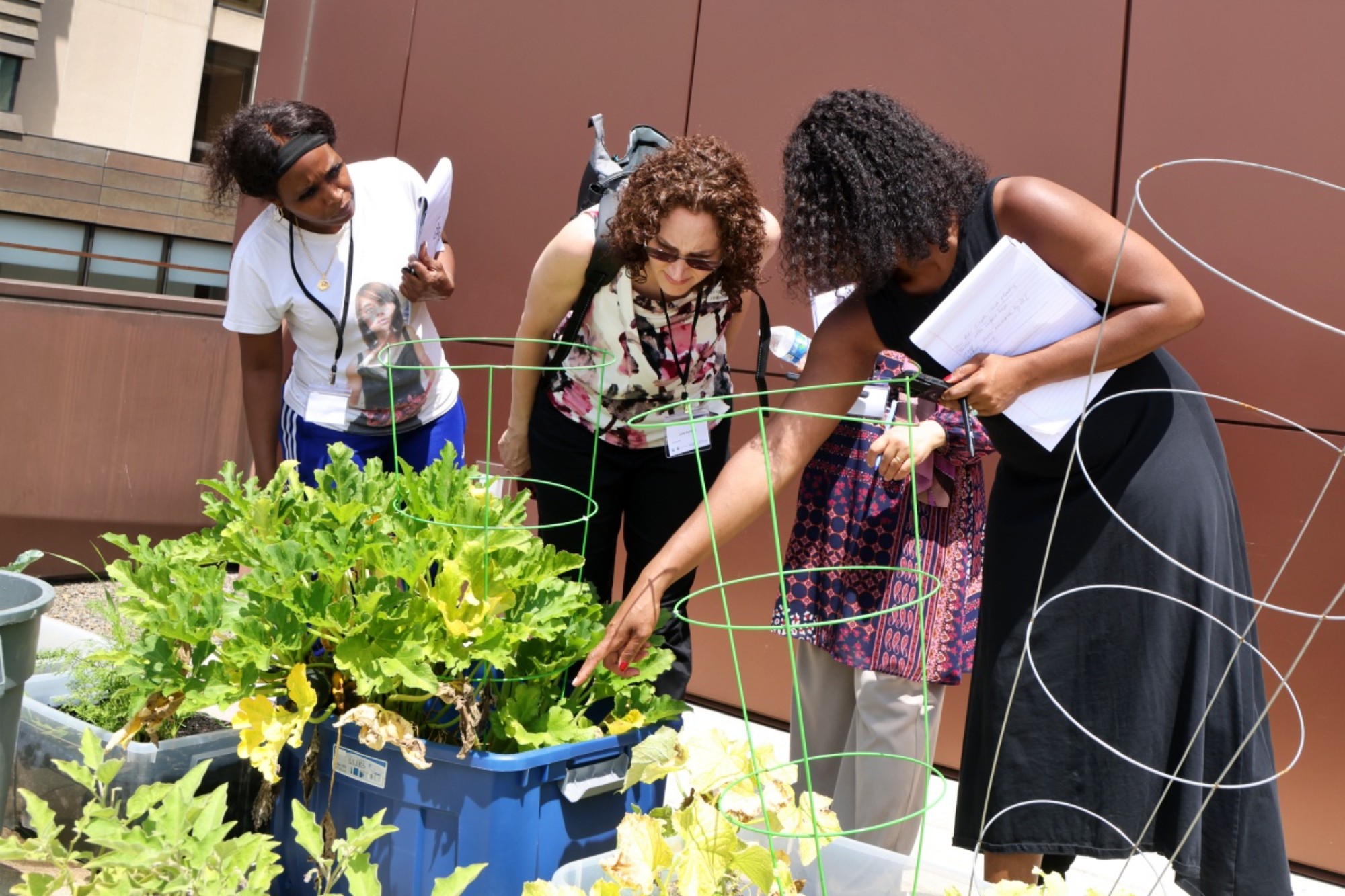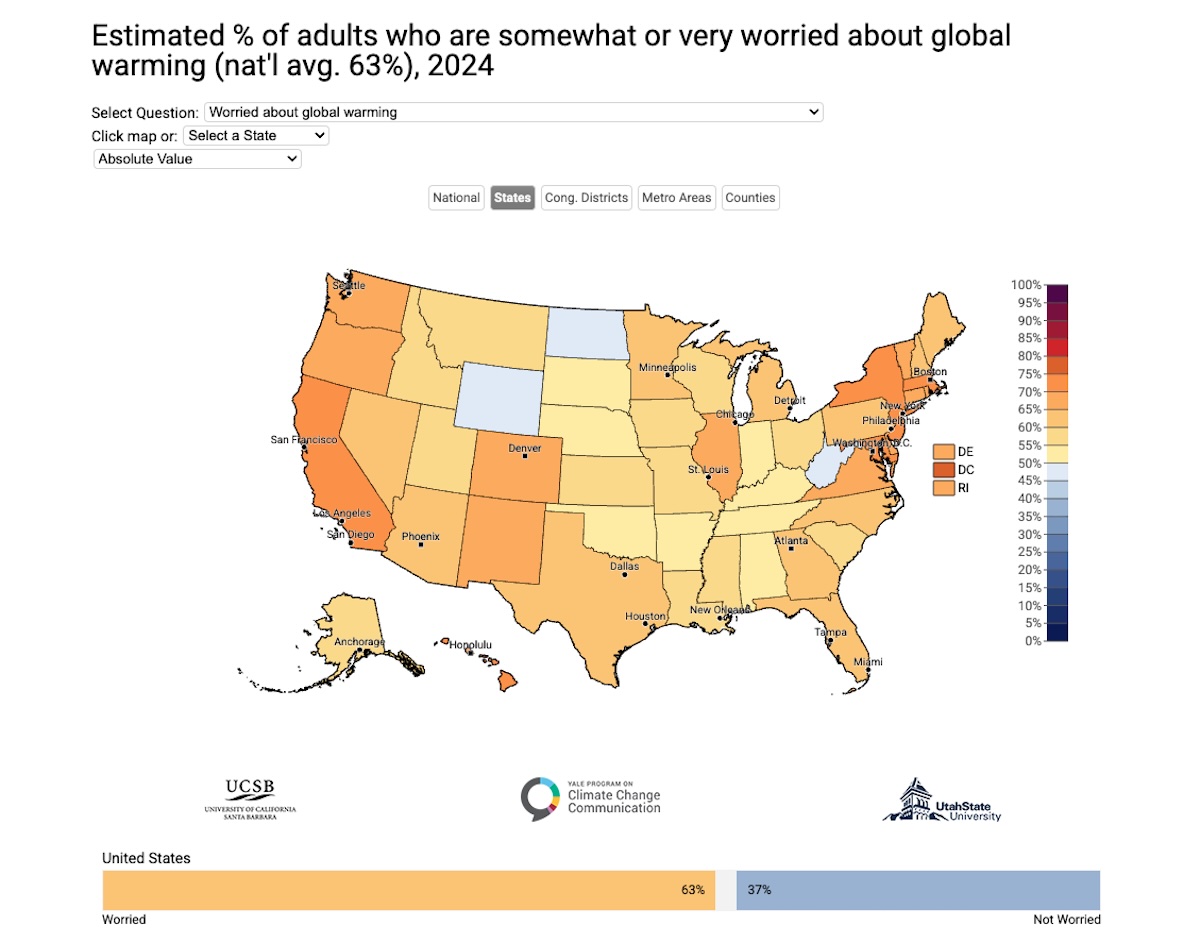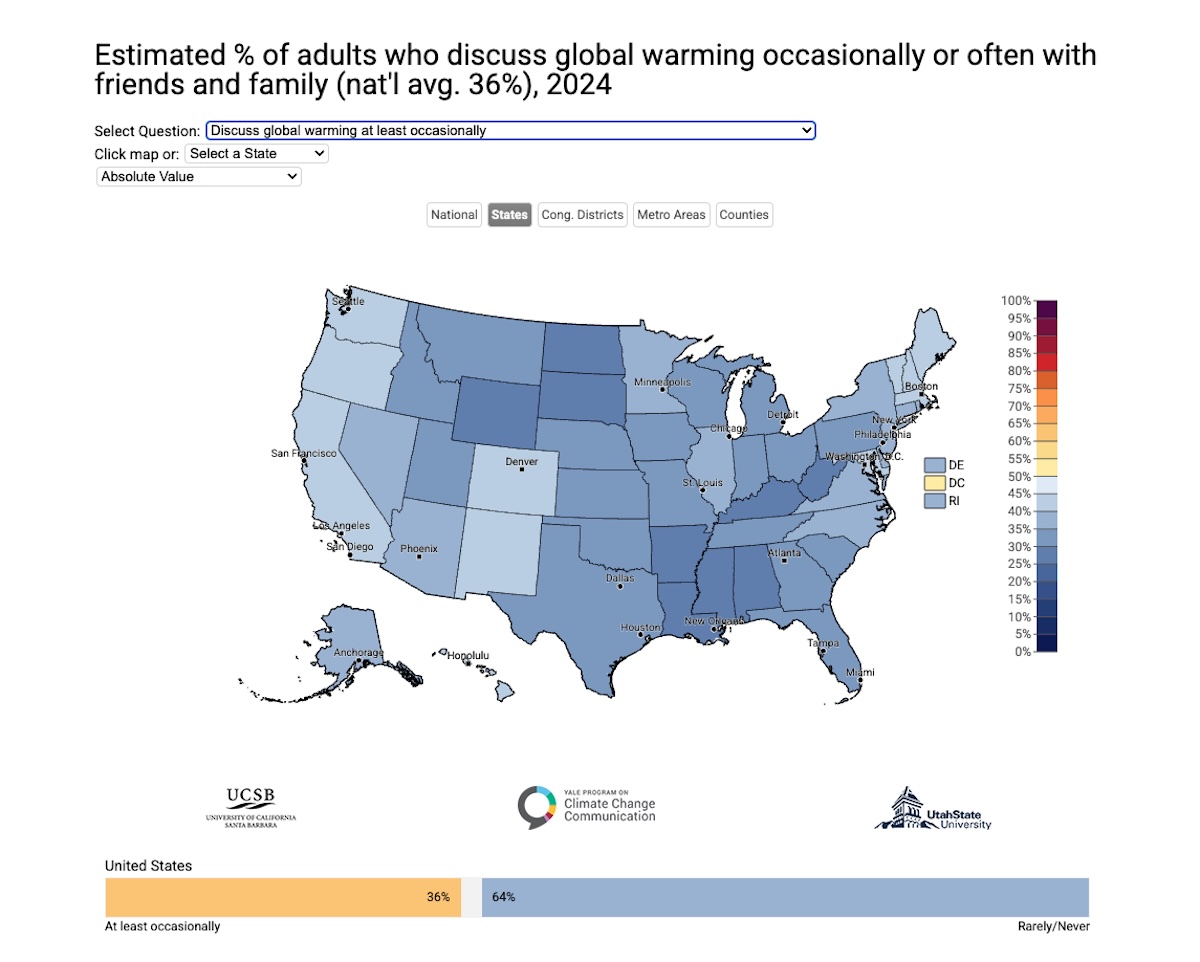How can educators and sustainability advocates more effectively drive progress across schools, organizations and communities? Teachers College’s new Sustainability & Education program will prepare graduates to create and lead transformative, environmental learning experiences across K–12 schools, nonprofits, higher education, and community-based organizations. Now accepting applications for its inaugural class, the program builds upon the College’s groundbreaking work to equip teachers in sustainability education and ready young people for the challenges ahead.
“Education must and will play a critical role in helping others to understand and engage with the facts about climate change with the goal of finding and implementing solutions,” said President Thomas Bailey, who has identified sustainability as a core interdisciplinary theme within the College’s Public Good Initiative. “Teachers College is uniquely positioned to help stakeholders of all kinds — whether in the classroom or the boardroom — lead effective action and build on our mission of creating a better world for everyone.”
Helping students understand the issues, and build their core capacities for advancing sustainability and climate change education, the interdisciplinary program is focused on real-world application, explains Oren Pizmony-Levy, director of the program and TC’s Center for Sustainable Futures.
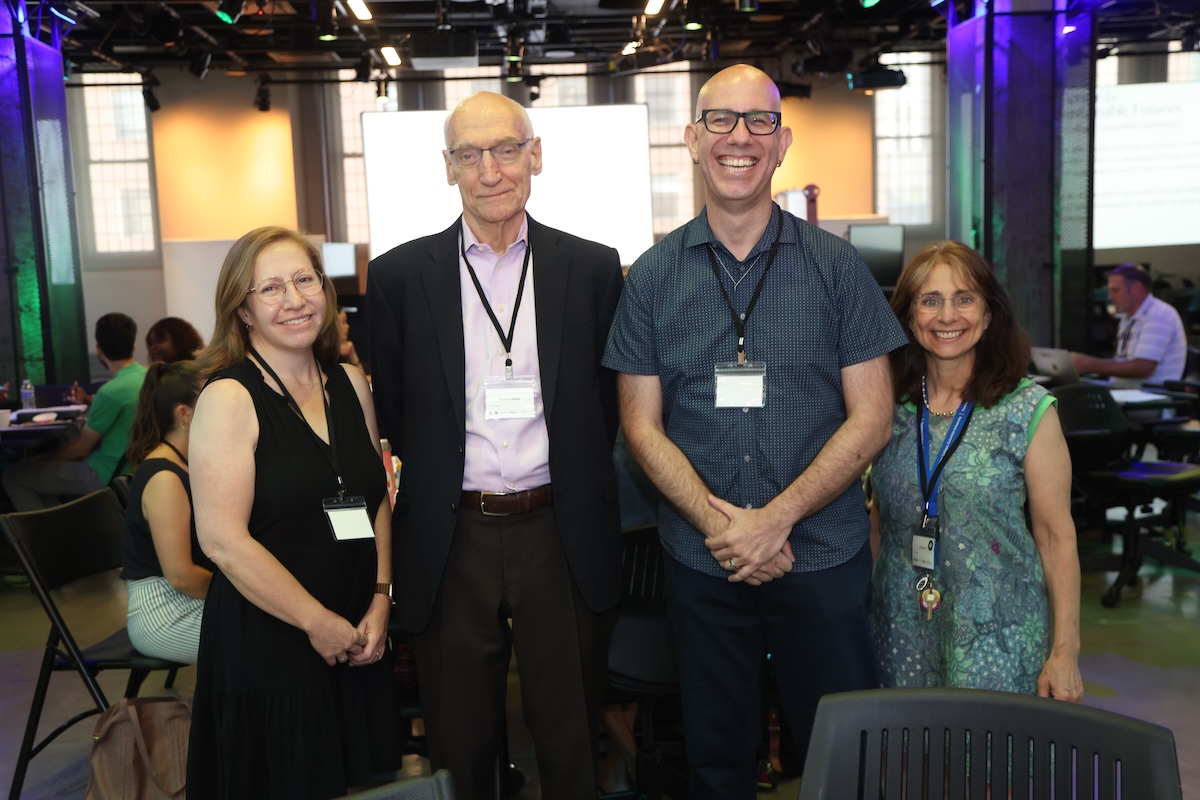
Ann Rivet, Associate Professor of Science Education and Associate Director of the Center for Sustainable Futures; President Thomas Bailey; Oren Pizmony-Levy, director of the program and TC’s Center for Sustainable Futures, as well as Associate Professor of International and Comparative Education; and Pam Koch, the Mary Swartz Rose Associate Professor of Nutrition and Education, and the Faculty Director of the Laurie M. Tisch Center for Food, Education & Policy, at TC's 2024 Summer Climate Institute. (Photo: Bruce Gilbert)
“Our goal here is to activate students as leaders so they can leverage the knowledge they’ll gain and take action,” says Pizmony-Levy, also Associate Professor of International and Comparative Education.
Such efforts have proven effective through TC’s partnerships with the New York City Public Schools’ Office of Energy & Sustainability — making the prospect of applying TC’s ethos to climate action more broadly exciting to Meredith McDermott, its Chief Sustainability and Decarbonization Officer.
“We believe that education is the critical foundation upon which all climate solutions are built; as such, an eagerly anticipated opportunity like this has become essential to cultivate and prepare educators and leaders,” says McDermott, noting TC’s sustainability work with NYC teachers has spanned for more than a decade. “We are excited to see the Sustainability & Education M.A. program engage new changemakers, policy influencers, and leaders of equitable and systems-level change to foster a healthier, more resilient and empowered world. We are so appreciative of our colleagues at Teachers College for their steadfast dedication to improving the quality of education and prioritizing sustainability in the process. This is leadership in practice.”
For Pizmony-Levy and his colleagues, helping students become effective leaders in a space often characterized by sobering statistics requires focusing on “joy, community and knowledge.” Hope and empowerment, he explains, can serve as a powerful antidote to cynicism and inaction. “The topic is very challenging and emotionally taxing, so you have to make it fun….In focusing on joy and community, people are there because they really want to be, are respected, and believe they can make a difference.”
Developed by faculty members from academic disciplines across the College, the program will offer students practical knowledge and analytical skills in topics like environmental policy, climate literacy, health, food systems, curriculum development, and evidence-based policy and practice.
In order to take action, you have to understand what kind of impact that your action is going to have and you have to understand the cause of the problem...We want to equip more people with those tools in order to do the work that will position us for the kind of future we want, which does bring hope, agency and possibility, and those are ideas that are infused throughout the program.
“We know so much about how people learn, how to teach for action and how to engage learners in different contexts, and that’s what we’re building on,” explains Ann Rivet, Associate Professor of Science Education and Associate Director of the Center for Sustainable Futures. In her “Science in the Environment” course, Rivet will help students develop a deeper understanding of climate science with a focus on three key complexities: feedback loops, varying timescales of impact, and evidence.
“In order to take action, you have to understand what kind of impact that your action is going to have and you have to understand the cause of the problem,” says Rivet. “We’re helping people develop an appreciation for how complex the global earth system is, how the system responds to changes to it and the rippling effects across the system.…We want to equip more people with those tools in order to do the work that will position us for the kind of future we want, which does bring hope, agency and possibility, and those are ideas that are infused throughout the program.”
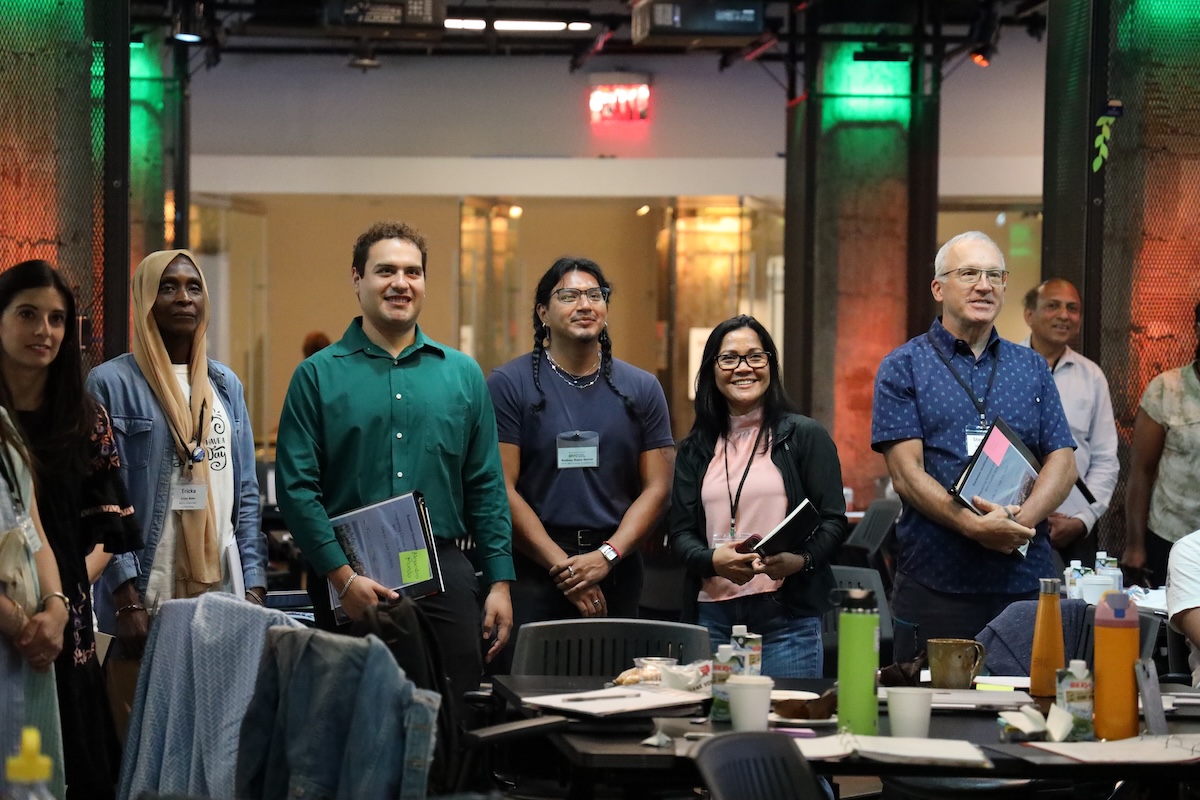
The Sustainability & Education master's program expands upon the College’s work to equip teachers in sustainability education and ready young people as part of the Summer Climate Institute. (Pictured: Educators during the 2025 program at Teachers College. Photo: Hua-Chu Yen)
In addition to the science education courses, students will build expertise across other disciplines like nutrition education and environmental health. For Sonali Rajan, Professor of Health Promotion and Education and one of the faculty involved in the program’s development from the beginning, the interdisciplinary lens “reflects a shift in where our students see themselves in the workforce and supporting healthier, happier communities.”
Indeed, rapid job growth in the sustainability sector demands workers ready to tackle evolving, complex problems. Across 120th Street, Columbia’s Chief Climate & Sustainability Officer Daniel A. Zarrilli — who advanced the field under New York City Mayors Michael Bloomberg and Bill de Blasio — sees a clear opportunity for advocates in all spaces.
“There’s so much to be done here. In a lot of ways, what we need is not necessarily more people who have sustainability in their title. We need more people who are climate-smart doing all of the jobs we do in the world,” says Zarrilli. “Every job is a climate job if you think about it in the right way, and professionals in the education sector are well-poised to help people think about these issues in their own lives and achieve much greater impact.”
This emerging middle ground stands in stark contrast with two polarities that have often characterized climate change conversations for the better part of the 21st century. First: that only federal governments and major corporations can make meaningful changes to curb climate change. And second: that the impact of an individual person is rooted in personal behaviors like taking public transportation, recycling and eating local. And while both are true, the TC Sustainability & Education program illuminates the potential to move the needle in ways that are often overlooked.
“When we are making more sustainable choices and sharing those changes with our community, we are creating a culture shift that leads to bigger changes,” says Pam Koch, the Mary Swartz Rose Associate Professor of Nutrition and Education, who will teach the program’s “Nutritional Ecology” course. “The good news is that when we eat sustainably, it is the same general guidelines that promote health, and lead to more equitable nutrition access…There are solutions, and we know what we need to do.”
When Koch, Rajan, Rivet and Pizmony-Levy welcome their first Sustainability & Education cohort to TC next fall, it’ll be “just the beginning,” says Pizmony-Levy. “We are really focused on joining others in building a new profession. The sky is the limit.”

